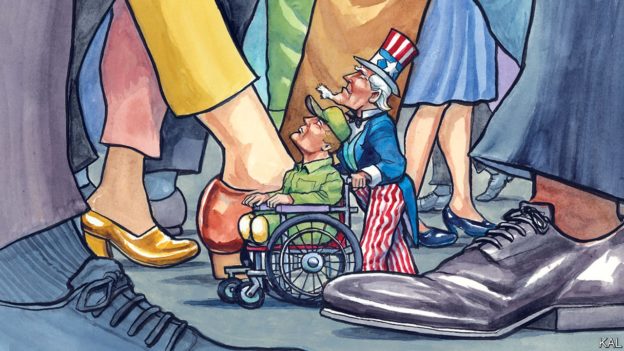“The wars in Iraq and Afghanistan have cost most Americans nothing.” says The Economist. Relatively few Americans have been personally touched. “That is why they continue.”
For once, the left-liberal magazine credits President Trump for trying to bring an end to what are “unproductive conflicts” [to put it mildly].
… [the] country has been remarkably unscathed by two decades at war. Iraq and Afghanistan vets represent much less than 1% of the population. America lost eight times as many soldiers in Vietnam, in less than half the time, when its population was two-thirds the current size. The number of recent wounded is correspondingly modest and most have been looked after with immense skill and no expense spared, as is right. Otherwise, few Americans have been touched by the conflicts at all.
… the wars have been funded by debt. Most Americans have had little reason to think their country is even at war. And lucky them because war is hell. But this disconnect helps explain why the country’s civil-military relations are as distant as they are. It also helps explain how America came to be locked in such long and largely unproductive conflicts in the first place. Its voters started to reckon with the rights and wrongs of the Vietnam war—then demand accountability for it—only after they felt its sting. By contrast Donald Trump, who almost alone among national politicians decries the latest conflicts, has struggled to interest voters in them—or indeed end them.Though mostly wrong on the details, the president raises an important question of the long wars. What have they achieved? After thanking Mr Butler and Mr Dwyer for their service on Veterans Day (a ritual neither wounded man greatly enjoys, incidentally), their well-wishers might want to ponder that.?
* Image courtesy The Economist.



 print
print